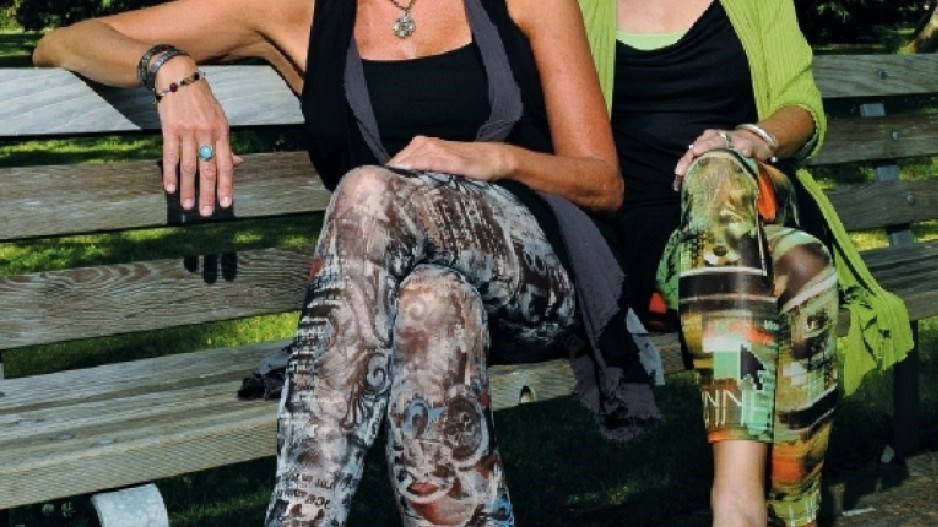Sometimes all you need is a "passion for fashion" and a "leap of faith" to start a business. Just ask Nicole Ritchie-Oseen, founder of Body Politic focus on eco-friendly and sustainable fashion.
"I always had this entrepreneurial spark in me, and I've always loved fashion," explained Ritchie-Oseen. "But I opened my store in 2008, right in the middle of world economic collapse, which certainly doesn't help your confidence to start a business. But at the same time, I felt like I had nothing to lose because it couldn't get much worse."
Carol Jamieson and Sue Wastie, founders of HippyPippiz, agreed: "We really just started this business on a shoestring, a leap of faith and a passion for fashion," explained Wastie.
"We also wanted to give back to the community," she added, with partial proceeds of every HippyPippiz sale going toward funding breast cancer research and treatment in B.C.
Ritchie-Oseen, Jamieson and Wastie were guest speakers at the Forum for Women Entrepreneurs (FEW) Garden Party social and networking event June 26 at the Vancouver Art Gallery.
With an interest in fashion and a shared desire to evolve local styles, both businesses have managed to carve out a unique edge in the local market.
"I remember hearing a comment about how everyone in Vancouver is just wearing boring leggings," said Wastie. "And we just wanted to turn it all around, where you can give your legs attitude and personality.
"We also have a huge respect for women's beauty. Women with curvy bodies think they can't wear leggings, but we've made them sit higher in the waist so they suck you in instead of fluffing out into a muffin top. Once women try them on, they see how great they look and they start to do all these funky poses. … It seems to somehow release the red-carpet diva in them."
For Ritchie-Oseen, it was her desire to give women more choice that drove her to eco-style.
"I didn't want to sacrifice my love of style just to be eco-friendly," she said. "I had been an eco-shopper before all of this, and it was exhausting. So in that way, I just wanted to make it easier to buy eco-friendly fashion. … I also wanted to give the designers, who are all independent and local, a great platform to bring us these kind of designs."
But it was also a desire to learn and a willingness to face the tough challenges of starting a business that kept all three entrepreneurs moving ahead.
"There's a lot of setup that you need to do in the first year, like logistics, admin and trademarking … so this last year has really been an incredible learning experience," said Jamieson.
Wastie also discussed how fashion provides a natural platform for women to overcome some common entrepreneurial challenges.
"I play golf, and I often hear men doing business on the golf course. But I don't think women really have that kind of relationship," she said. "We feel sort of guilty if we start wheeling and dealing in a social setting. But when it comes to fashion, women talk about clothes. So our business naturally comes to the forefront when we're out socializing and talking to other women."
Ritchie-Oseen also addressed the value of mentorship and having others with experience to guide you along the way.
"I've been involved with the FWE and its mentorship program, and it's been such a blessing to talk to other business owners who have been through it all," she said. "Being an independent business owner, you can feel pretty isolated. So whether it's through a formal mentorship program or whether it happens more organically, it's important to have someone you can talk to instead of being in your own head all of the time."
"You also can't wait for the perfect time to start your business," continued Ritchie-Oseen. "A lot of women wait until they're financially stable or until after they have children. But sometimes you just need to take the plunge. That's what I did and I'm glad I did it. If I would have waited for more security, I'd probably still be waiting.




